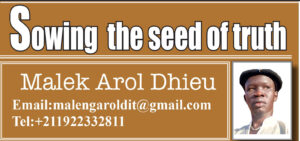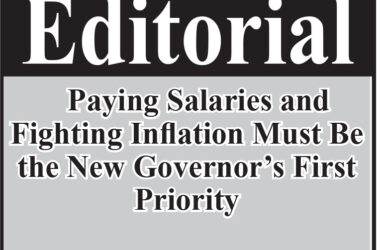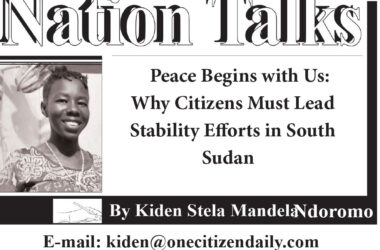Ater Kot Ater, an author of a poetry book entitled “Eager Thoughts”, once referred, in a Facebook post, to such type of democracy as a guided democracy where youth are told what to do and who to vote for.
What kind of democracy is that? If youth are told to go left, right, forward, or backward in their own affairs, it shows that they are blind to do their affairs without guidance from someone.
Well, guidance is good, but it should not reach an extent where it compromises democracy. If youth are threatened to vote for a youth being carried on the waist of the older people, or else their own security is in their own hands, then what the hell is that? Before I point at older people as those spoiling the future of youth in South Sudan, I must first point at the youth as those spoiling themselves. If majority of youth cannot operate independently, but operate under the strict instructions of their political godfathers, how would such youth stand on their own feet in youth politics?
Yes, every youth may have his/her own influential personality in politics, but that does not mean such an influential politician should be involved in the affairs of youth. If involved, he will fight hard to bring a youth of his own tribe, political camp, or affiliation. This is what takes place in South Sudan. A youth who has no uncle, political camp, or army General standing behind him cannot win any elections in youth associations and unions. Look at how people play with democracy! Nothing concerns an army General, an uncle or a tribe in democracy. Democracy is all about political freedom, equality, and influence to win the popular vote. However, this type of democracy practiced in South Sudan is too deformed.
Already, South Sudan’s system is deranged. Leaders are working on how best they can recover South Sudan and prevent future shortfalls so that youth and unborn generations will inherit a country with an improved system. But I’m afraid of the unacceptable upbringing of youth in South Sudan as it predisposes South Sudanese to the same setbacks or even much worse ones. So, why? Why would people subject themselves to generations of setbacks?
We do not want South Sudan where political decisions are made on tribal influence. We do not want South Sudan where social interactions are affected by chronic stereotyping. We do not want South Sudan where oil and non-oil revenues are diverted to individuals’ bank accounts and no accountability. We do not want South Sudan where the guilty are acquitted and the innocent are convicted. We do not want South Sudan where gold is never talked about because it is only the big man and close associates.
We do not want South Sudan where decisions are made in abundance, but not even half a step is taken to implement them. We do not want South Sudan where trillions of South Sudanese Pounds are approved as a fiscal year budget, but no salaries for soldiers and civil servants for the whole year. We do not want South Sudan where unborn generations inherit debts instead of reserves.
If youth are truly leaders of tomorrow as widely claimed, they should be allowed, with neutral guidance, to practice a modern-day politics that will adequately prepare them to bring an absolute change to South Sudan. This is the only preventive measure to take to create a politically, socially, and economically strong South Sudan.
Thank you for reading “Sowing The Seed Of Truth”.




